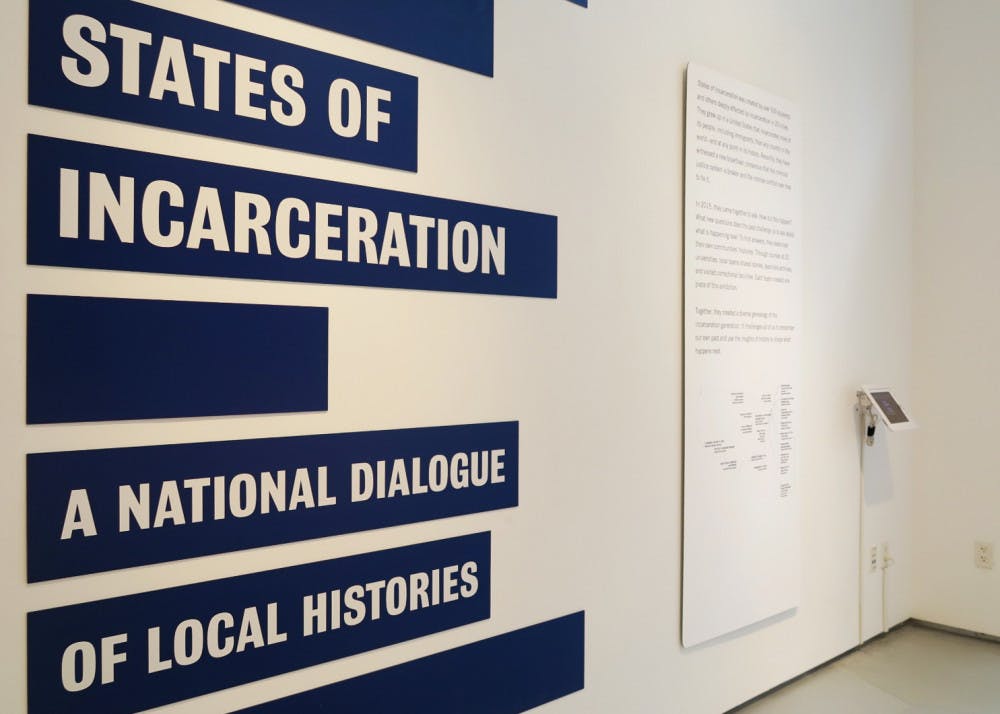Kennedy Plaza erupted in protest Friday as organizers used the 45th anniversary of the Attica Prison uprising to call attention to prison slavery. Now Brown is following suit.
This Thursday, Providence will host “States of Incarceration,” an exhibit exploring the history of mass incarceration in 17 states. For the next month, Rhode Islanders can head to the University of Rhode Island Gallery, where displays produced by 20 universities, including Brown, will offer visitors a chance to interact with the hidden world of America’s prison system.
The consortium of universities comes together through the Humanities Action Lab, a “national hub” within The New School that regularly unites schools for discussions on “urgent social issues,” according to its website. Last year, HAL chose Guantánamo Bay as its focus, and each participating university analyzed the history of the detention camp. Now, the spotlight has turned to mass incarceration.
As a member of the consortium, each university is expected to offer a course and panel focused on the local history of incarceration — Louisiana might study Angola Prison, while New York might focus on Attica. But Brown turned its gaze outward, offering students a chance to learn about incarceration as a worldwide phenomena with a history course, HIST 0150C: “Locked Up: A Global History of Prison and Captivity.”
Taught by Amy Remensnyder, professor of history, the course was offered for the first time three years ago when Remensnyder, a medievalist historian, became interested in prison reform.
“I was at the point in my career where I really needed to reinvent myself,” she said. Interested in how a medievalist scholar could enter the modern world of criminal justice reform, she designed a four-unit session on the crusades and taught it at the Adult Correctional Institution in Cranston, Rhode Island. It was a far cry from her teaching experience on College Hill, she said, as she was now teaching “the history of a form of suffering to people who are experiencing that form of suffering.”
Three years later, Remensnyder offers “Locked Up” to both Brown students and incarcerated individuals at ACI. Her class last year helped produce displays on the global history of slavery, which will now be presented in “States of Incarceration.”
Along with the exhibit, Rhode Island will offer complementary programming on Friday. A documentary titled “Sons and Daughters of the Incarcerated,” created by Rhode Island School of Design graduate student Denali Tiller, focuses on Rhode Islanders with incarcerated parents. A daylong conference on prison education will explore what role an Ivy League institution can play in ending mass incarceration.
As of now, Brown’s role in the consortium’s analysis is undetermined, as the school offers no official prison education program, according to Marisa Brown, assistant director of programs for the John Nicholas Brown Center for Public Humanities and Cultural Heritage. Incarcerated students who take courses like “Locked Up” will not receive credit to put towards any other higher education degrees upon release. But Friday’s conference may plant the seeds to begin a more concerted effort in prison education, Brown added.
“The numbers of incarcerated have gone from about (600,000) in 1990 to over 2.3” million today, Brown wrote in an email to The Herald. “It would be inspiring to see Brown take a leadership position on this issue.”





